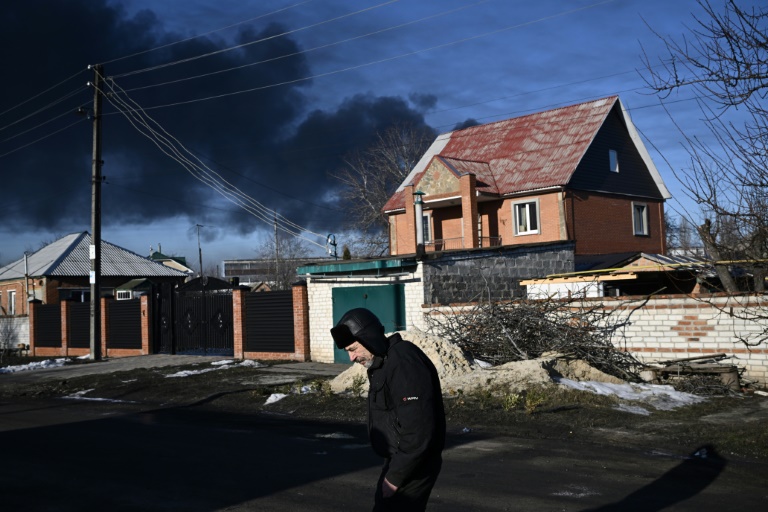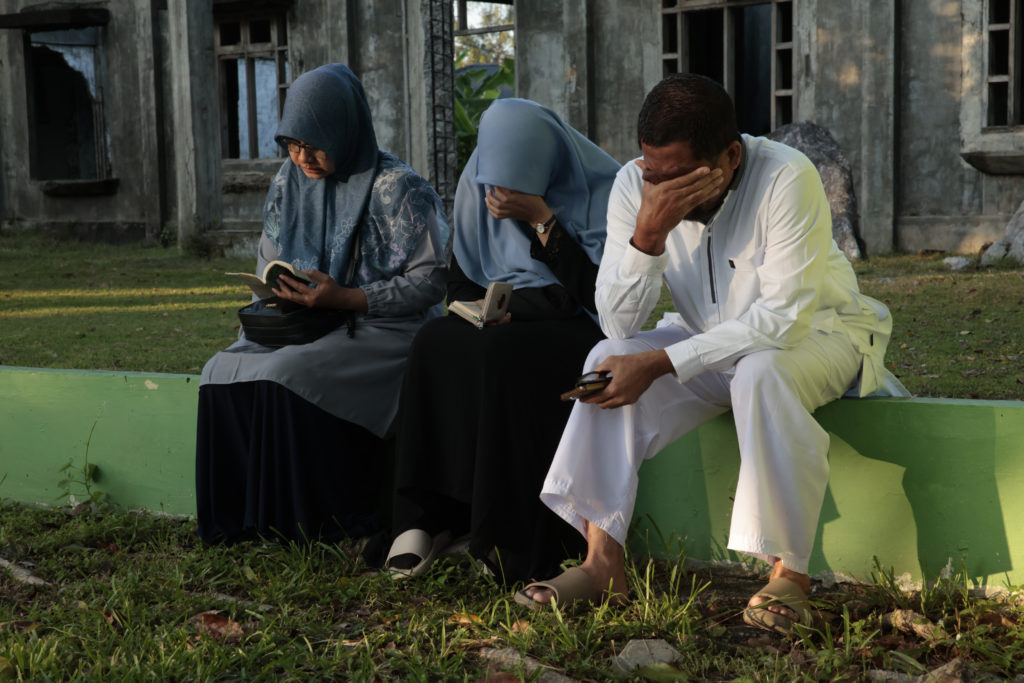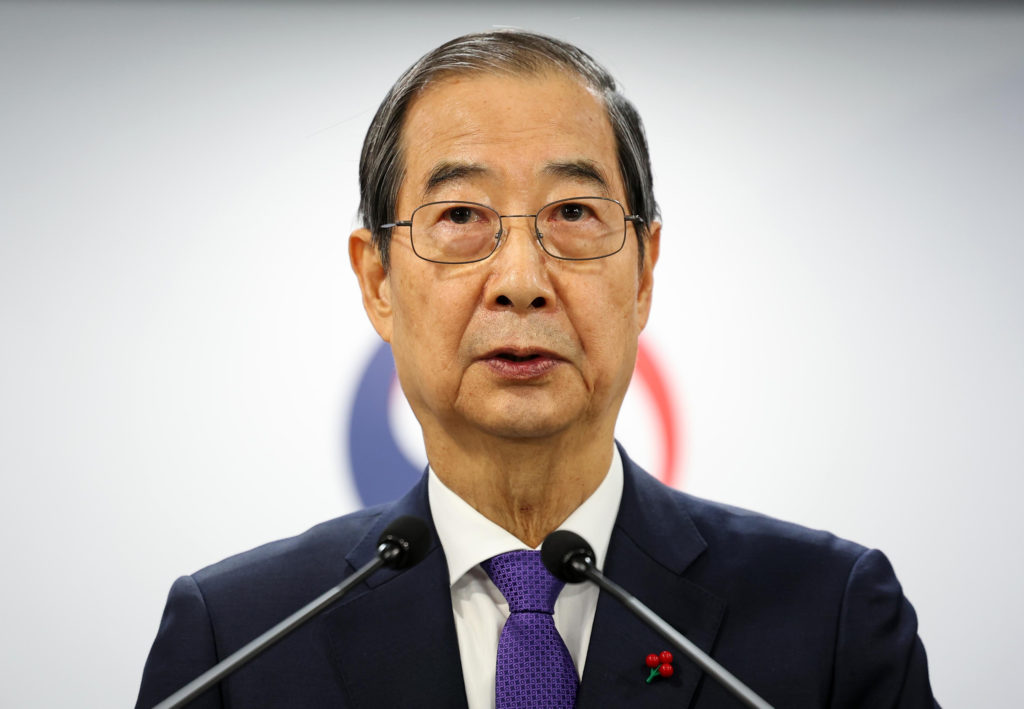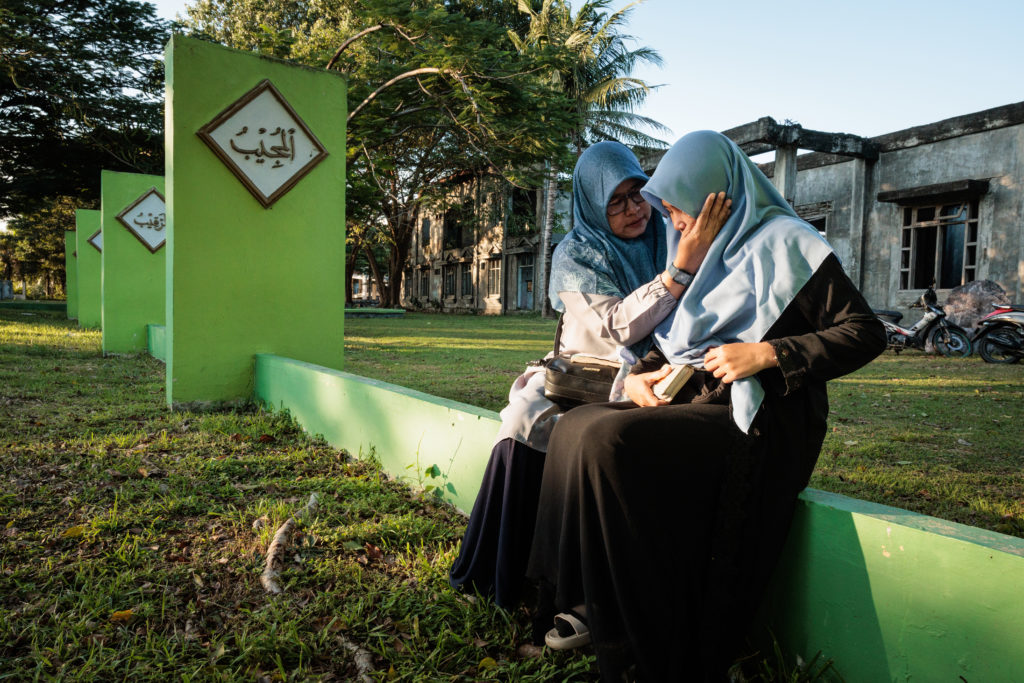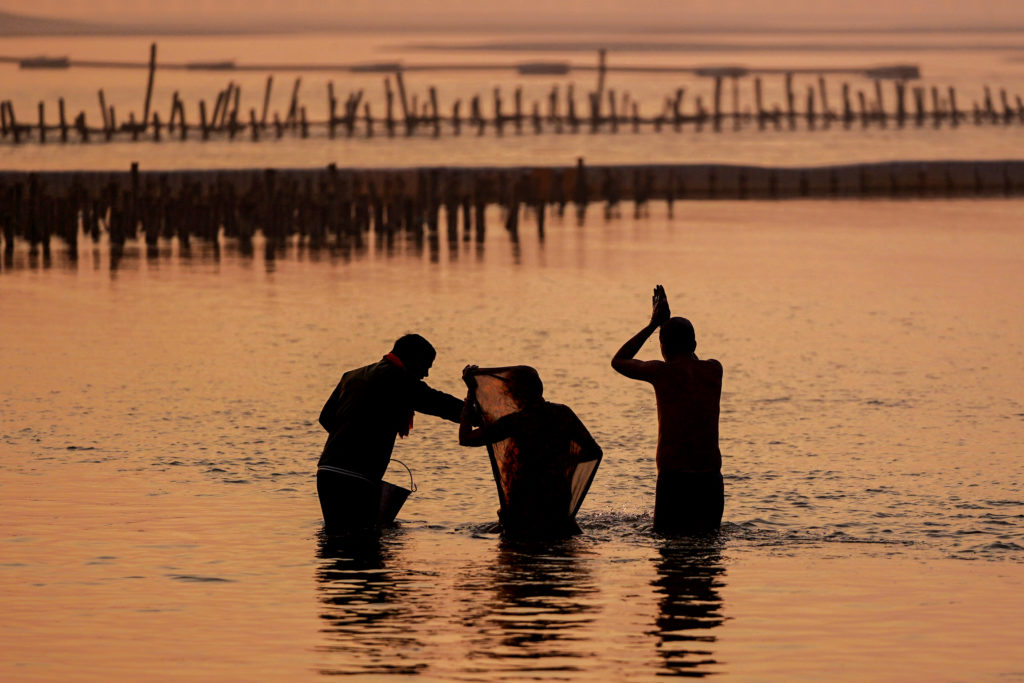A son wept over the body of his father among the wreckage of a missile strike in a residential district in the eastern Ukrainian town of Chuguiv as the country reeled Thursday from Russia’s invasion.
“I told him to leave,” the man in his 30s sobbed, next to the twisted ruins of a car.
Nearby a woman screamed curses into the wintry sky.
A missile crater, some four to five metres wide, was scoured into the earth between two devastated five-storey apartment buildings. Firefighters battled to extinguish the remains of a blaze.
Several other buildings on the street were seriously damaged, their windows shattered and doorframes hanging in the frigid morning air.
It was among the first reported damage after Russia launched an invasion of Ukraine early Thursday, with explosions heard in several locations across the country in the early morning hours.
Residents said a 13-year-old was among those killed in the town, but there was no definitive death toll from the authorities.
Sergiy, 67, tried to use the leg of an Ikea table to block up his smashed window. He had received a few bruises but said he was fine.
“I’m going to stay here, my daughter is in Kyiv and it’s the same there,” he told AFP.
Sergiy thought the target had been the nearby military airfield, close to Ukraine’s second city Kharkiv and just 40 kilometres (25 miles) from the Russian border.
“It was one of the targets that Putin had cited, I’m not even surprised,” he said, refusing to give his surname.
“We will hang in there.”
Thick black smoke could be seen billowing from the direction of the airfield — one of a raft of strategic locations across the country pounded by Moscow’s firepower in an opening barrage.
Teenager Anastasia clutched her grey cat as she watched her grandfather in a wheelchair being loaded onto a minibus waiting to rush them to a nearby village.
– ‘Hope the war will spare us’ –
“We could never have expected this. We’re going to the village, we hope the war will spare us there,” she said.
A few hours later teacher Olena Kurilo, 52, emerged from the town’s hospital with her faced swathed in bandages. A missile had blasted shards of glass from her windows into her face.
Doctors said 20 wounded people remained in hospital for treatment.
“I only managed to think in that second ‘My God, I’m not ready to die’,” Kurilo said.
“I was in shock, I felt no pain.”
She said she “never thought” that such an attack would come, but now it has she was in no mood to surrender.
“I will do everything for Ukraine, as much as I can,” she said.
“Never, under any conditions will I submit to (Russian President Vladimir) Putin. It is better to die.”
Ukrainian military personnel and trucks swarmed around the town as the government in Kyiv insisted its forces would do all they could to protect Ukraine.
Across Ukraine’s vulnerable eastern front civilians and soldiers scrambled to react as one of the world’s most powerful militaries began what authorities warned was a “full-scale invasion”.
Some 250 kilometres to the south — along the frontline where Russia-backed separatists have been fighting Ukraine — authorities were rushing to evacuate civilians as fighting raged.
Local administrations reported heavy missile bombardments as Russian forces sought to advance — cutting gas and electricity, and making evacuations impossible in some areas.
Official Vladimir Vesyelkin said missiles had rained down on his village of Starognativka since the morning and power was out.
“They are trying to wipe the village off the face of the earth,” he said.
Yevgeny Kaplin, head of the humanitarian organisation Proliska, said attacks were going on across the entire frontline that had divided Ukrainian forces from an enclave held by Russian-backed rebels.
But poor communications were hampering information coming about victims.
“The offensive is underway along the entire demarcation line in the Lugansk and Donetsk regions,” he said.
“Fighting is happening everywhere. We cannot yet receive information about victims, because there is no communication in this area.”

